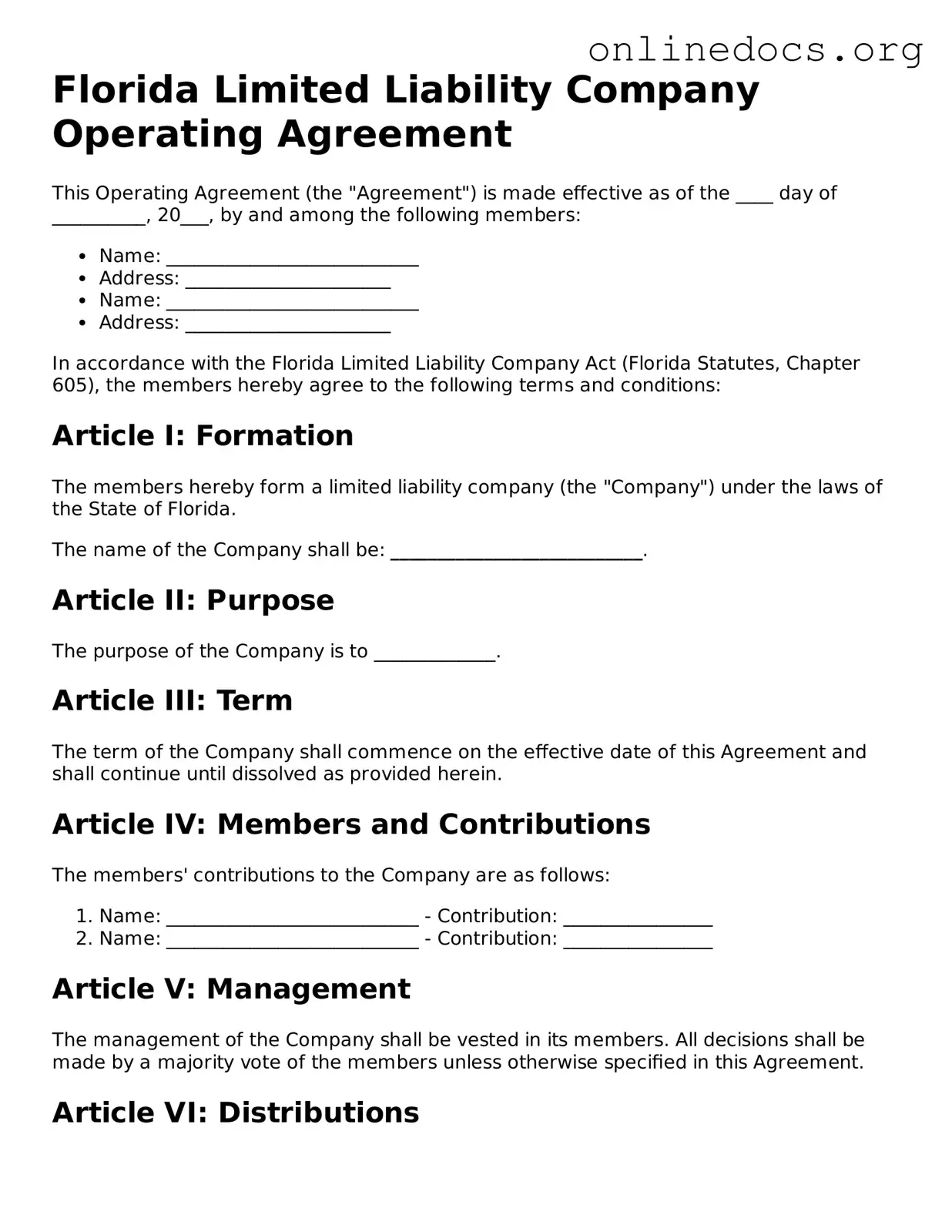The Florida Operating Agreement is often compared to a Partnership Agreement. Both documents outline the structure and management of a business entity, detailing the roles and responsibilities of each partner. While a Partnership Agreement is specifically for partnerships, the Operating Agreement serves limited liability companies (LLCs). Each document emphasizes the importance of defining ownership percentages, profit sharing, and decision-making processes, ensuring that all parties understand their rights and obligations.
Another similar document is the Bylaws of a corporation. Bylaws serve as the internal rules governing the management of a corporation, much like an Operating Agreement does for an LLC. They outline the roles of directors and officers, meeting procedures, and voting rights. Both documents aim to provide a clear framework for governance, helping to prevent disputes and misunderstandings among members or shareholders.
The Shareholders Agreement is also comparable to the Florida Operating Agreement. This document is essential for corporations, detailing the rights and obligations of shareholders. Similar to an Operating Agreement, it covers aspects like ownership transfer, voting rights, and management structure. Both documents protect the interests of the members or shareholders, ensuring a smooth operation and clear communication within the entity.
A Joint Venture Agreement shares similarities with the Florida Operating Agreement, particularly in how it governs the collaboration between two or more parties. This document outlines the purpose, contributions, and responsibilities of each party involved in the joint venture. Like the Operating Agreement, it aims to clarify expectations and prevent conflicts, ensuring that all parties work towards a common goal.
The Limited Partnership Agreement is another document that resembles the Florida Operating Agreement. This agreement governs limited partnerships, specifying the roles of general and limited partners. It details profit distribution, management responsibilities, and the process for adding new partners. Both agreements focus on defining the relationship between members and establishing clear operational guidelines.
A Non-Disclosure Agreement (NDA) can also be seen as similar in its purpose of protecting sensitive information. While it does not govern the operational aspects of a business, it establishes confidentiality among parties, much like an Operating Agreement protects the interests of LLC members. Both documents help to maintain trust and security in business relationships.
When engaging in any vehicle transaction in California, it's crucial to have a clear understanding of the necessary documentation, such as the Vehicle Purchase Agreement, which can be found at https://californiapdfforms.com/vehicle-purchase-agreement-form, to ensure a smooth and transparent sale between the buyer and seller.
Finally, the Employment Agreement has some parallels with the Florida Operating Agreement, particularly in defining roles and responsibilities. While the Employment Agreement focuses on the relationship between an employer and employee, it also outlines expectations, compensation, and termination conditions. Both documents aim to create clarity and accountability within their respective frameworks, ensuring that all parties understand their commitments and obligations.
